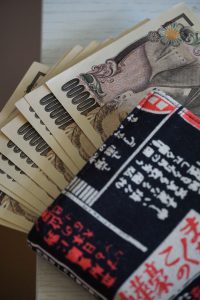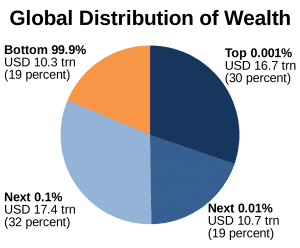
Unveiling Wall Street’s Weapon of Choice: The Power of Psychological Deception
Updated March 31, 2024
Wall Street has long employed psychological deception as a powerful tool to manipulate markets and investors. These tactics are easy to deploy, cost-effective, and often go unnoticed by the masses, creating a favourable environment for big players to exploit. Historical examples, such as the tulip mania of the 17th century, demonstrate that similar strategies have been used for centuries.
In his famous work, “The Republic,” ancient Greek philosopher Plato presents the allegory of the cave, which serves as a fitting analogy for the current state of investor awareness. In this allegory, prisoners are chained in a cave, only able to see shadows cast on the wall by objects passing in front of a fire. They mistakenly believe these shadows to be reality, much like how many investors are oblivious to the psychological manipulation occurring in the markets.
Recent studies have shown that cognitive biases, such as herding behaviour and confirmation bias, play a significant role in investor decision-making. A 2020 Journal of Behavioral and Experimental Finance study found that investors are likelier to follow the crowd during market uncertainty, leading to increased volatility and potential bubbles.
Despite the prevalence of these deceptive tactics, informed investors can navigate this environment and achieve success. By remaining vigilant, conducting thorough research, and avoiding emotional decision-making, investors can mitigate the impact of psychological deception and capitalize on market inefficiencies.
However, most investors remain unaware of these manipulative strategies, and attempts to warn them may be met with resistance or hostility. This reluctance to acknowledge the reality of market manipulation perpetuates the cycle of deception and allows Wall Street to continue exploiting the masses.
The Art of Cognitive Manipulation: Unmasking Psychological Deception
Psychological deception has become ubiquitous in controlling the masses and their perceptions. The goal is to alter, modify, and change reality by limiting the angle of observation and twisting what was once deemed a lie into an apparent truth. This manipulation is prevalent in the media and other aspects of life, including the stock market.
The ancient Greek philosopher Plato’s “Allegory of the Cave” is a powerful metaphor for the current state of mass perception. In this allegory, prisoners are chained in a cave, only able to see shadows cast on the wall, which they mistakenly believe to be reality. Similarly, many people today are oblivious to the psychological manipulation occurring around them, accepting the information presented without question.
Embracing Adaptability: The Key to Navigating Deception
To combat this manipulation, one must avoid accepting data at face value and examine information from a contrarian perspective. **Embracing adaptability and maintaining a neutral stance is crucial in seeing the whole picture**. Committing to a single position, such as being a perma-bull or perma-bear in the stock market, limits one’s range of observation and access to data by 50%.
Psychological manipulation can lead to various cognitive biases, such as the McGurk effect, where a mismatch between the senses of hearing and seeing results in an error in sound perception. Additionally, fear can influence perception, as demonstrated by an experiment where fearful participants standing on a skateboard judged a hill to be steeper than those standing on a box.
The Illusion of Objective Perception
It is essential to recognize that **objective perception is an illusion**. Perceptual qualities and quantities change throughout an individual’s lifetime, and tastes and preferences can shift even within a single person. Cognitive dissonance, the mental toll experienced when faced with contradictory information, further complicates the pursuit of objective perception.
Sigmund Freud, the father of psychoanalysis, emphasized the importance of unconscious influences on behaviour. Evidence suggests that we perceive and process much more information than we realize, and our actions are often shaped by feelings and motives of which we are only partially aware.
In conclusion, psychological deception is a powerful tool for manipulating the masses. By understanding the mechanisms behind this manipulation and embracing adaptability, individuals can navigate the complexities of perception and make more informed decisions. As Plato’s allegory teaches us, it is essential to question the shadows on the wall and strive for a clearer understanding of reality.
Unmasking the Intricacies of Economic and Psychological Deception with Hot Money
Throughout history, economic and psychological deception has been used to manipulate the masses. As the ancient Chinese military strategist Sun Tzu once said, “All warfare is based on deception.” This principle holds in military conflicts, economics, and finance.
The current economic recovery has relied heavily on debt as its funding source. According to some experts, the Federal Reserve injects 2-3 dollars to generate a mere 1 dollar in returns. If a regular business were to employ such a methodology, it would not sustain itself for long, but the Fed operates without such constraints. They can create five dollars with the same ease as conjuring up five billion.
This situation appears absurd, yet the masses remain eerily silent. It has taken roughly a century for the U.S. national debt to escalate from zero to one trillion dollars, but now the country accumulates that same debt annually.
The Weapon of Learned Helplessness
When it comes to controlling a formidable entity, inducing a sense of helplessness is crucial. Once the entity feels powerless, it enters a state called “learned helplessness,” where even the most fierce creatures become submissive. The famous investor and philosopher Warren Buffett once said, “The most important quality for an investor is temperament, not intellect.”
This concept of learned helplessness can be applied to the masses, who often feel powerless in the face of economic manipulation. As the 18th-century French philosopher Voltaire observed, “It is difficult to free fools from the chains they revere.”
The Deception of Hot Money
Hot money, or speculative capital that flows between financial markets seeking short-term profits plays a significant role in economic deception. The legendary investor George Soros, known for his successful speculation against the British pound in 1992, has been accused of using hot money to destabilize economies for personal gain.
However, as the 19th-century British economist John Stuart Mill noted, “The only freedom which deserves the name is that of pursuing our good in our way, so long as we do not attempt to deprive others of theirs, or impede their efforts to obtain it.”
Financial education is crucial to combating economic and psychological deception. As the ancient Greek philosopher Aristotle said, “The educated differ from the uneducated as much as the living from the dead.”
In his book Rich Dad Poor Dad, renowned investor and author Robert Kiyosaki emphasizes the importance of financial literacy, stating, “The single most powerful asset we all have is our mind. If trained well, it can create enormous wealth seemingly instantaneously.”
Central bankers are utilising the same strategy.
Since abandoning the gold standard, the Federal Reserve’s tactics have shifted from stabilizing interest rates for public benefit to using them to orchestrate economic cycles. The public, largely unaware of these strategies, has witnessed the national debt skyrocket from zero to one trillion dollars over a
The conclusion of this economic ‘experiment’ hinges on public tolerance, which is being tested as never before. The end will come when the collective decides enough is enough. Yet, if perceptions of ‘enough’ are malleable, the experiment could persist indefinitely, altering the threshold of public endurance.
Understanding the history of economic and psychological manipulation is critical to self-protection. As Machiavelli observed, people’s simplicity makes them vulnerable to deception. We can strive for a more transparent and fair economic system through education and awareness.
.
Conclusion
Since abandoning the gold standard, the Federal Reserve’s tactics have shifted from stabilizing interest rates for public benefit to using them to orchestrate economic cycles. The public, largely unaware of these strategies, has witnessed the national debt skyrocket from zero to one trillion dollars over a century, with the same amount now accruing annually.
The conclusion of this economic ‘experiment’ hinges on public tolerance, which is being tested as never before. The end will come when the collective decides enough is enough. Yet, if perceptions of ‘enough’ are malleable, the experiment could persist indefinitely, altering the threshold of public endurance.
Understanding the history of economic and psychological manipulation is key to self-protection. As Machiavelli observed, people’s simplicity makes them vulnerable to deception. We can strive for a more transparent and fair economic system through education and awareness.
A person usually has two reasons for doing something: a good reason and the real reason.
Thomas Carlyle
Lost in Reflection: Stimulating Perspectives

Rethinking Education: Embracing AI and its Implications

Yen Crash: Approaching the Bottom or Further Decline Ahead?
Puppet Master: China Vs USA: Who Is The Spider

Decoding the Enigma: What Are Gold Bugs

Long-Term Gold Targets: Exploring the Path to the Moon
Capitalizing on the Oil to Gold Ratio: An Ideal Time to Invest in Oil

Trading Chart Patterns Cheat Sheet: Mastering the Key to Success

Abu Bakr al-Baghdadi: The Rise and Fall of the ISIS Leader
Gold bullion bars prices: Trend Projections

The Poor Get Poorer And The Rich Get Richer: Deepening Inequality

The Kurds: Defying Extremism and Paving the Path to Peace in Syria

Volatile Markets: Conquer Market Turbulence and Thrive
Is Religion Dying: Shaping Beliefs with New Discoveries

Exploring the Depths of the Unconscious Mind

Day Late and a Dollar Short: Lessons in Timing and Consequence
The Path Forward: Avoiding Debt Can Lead to Financial Freedom and Hope.


